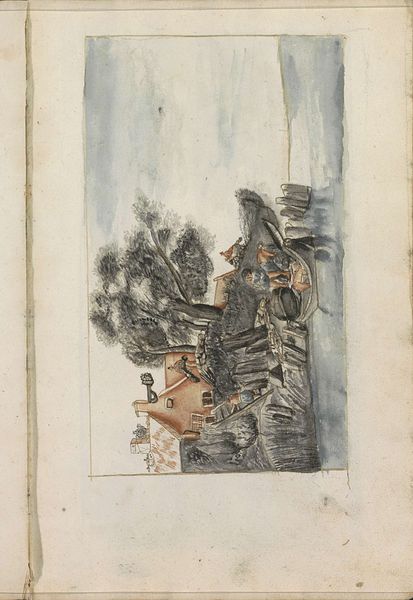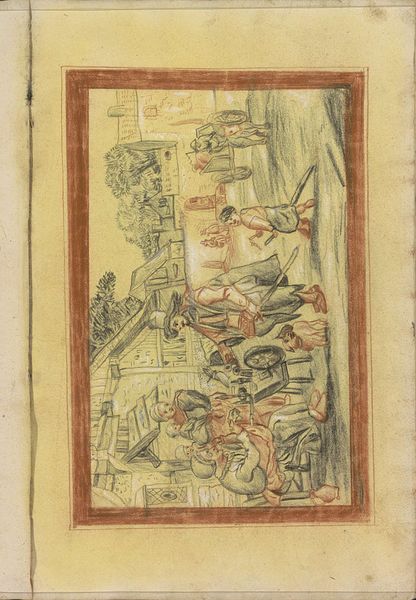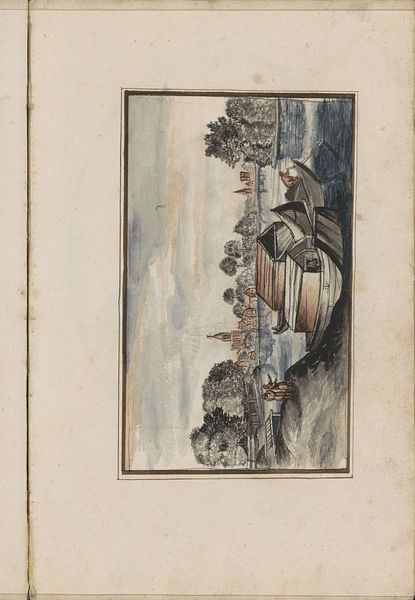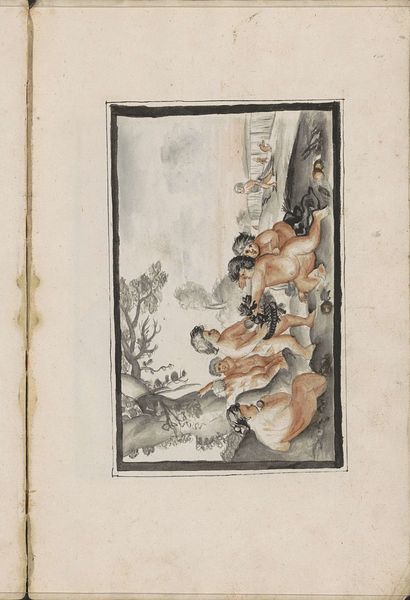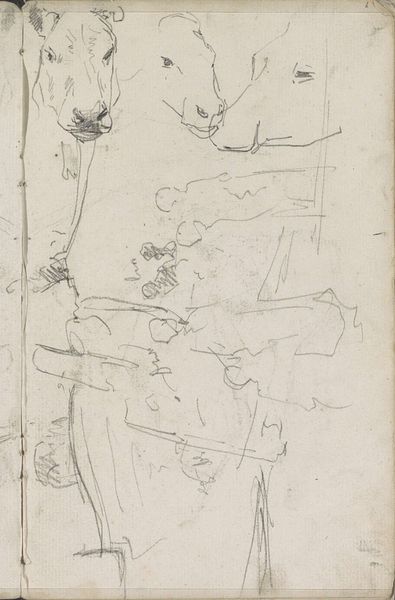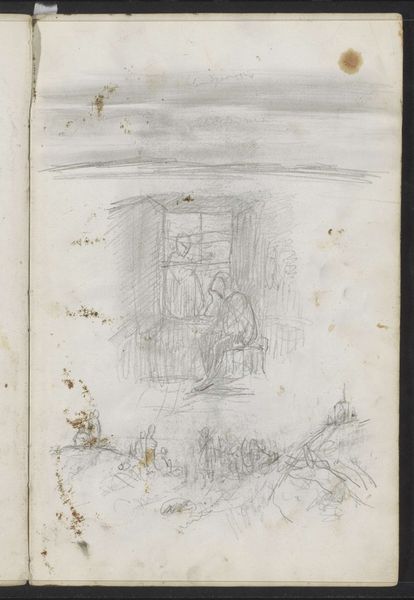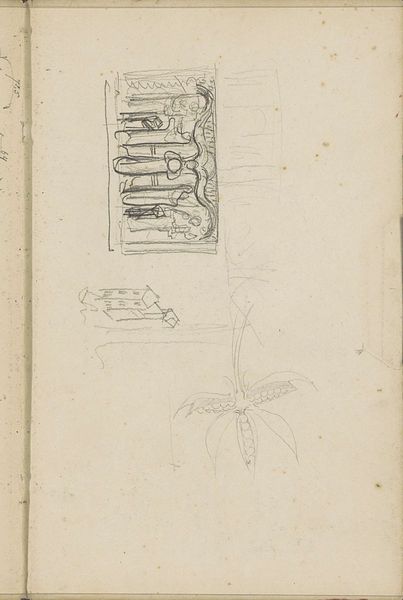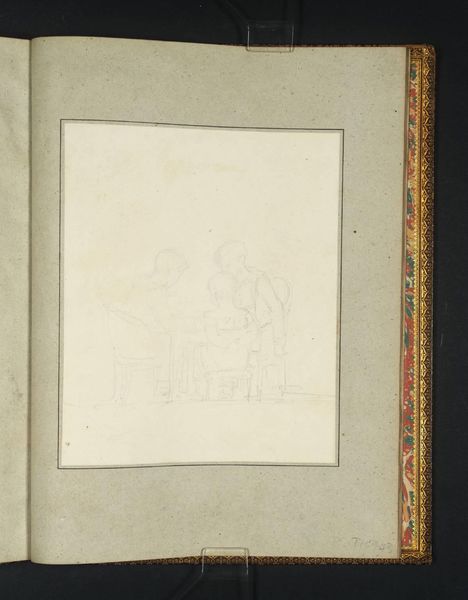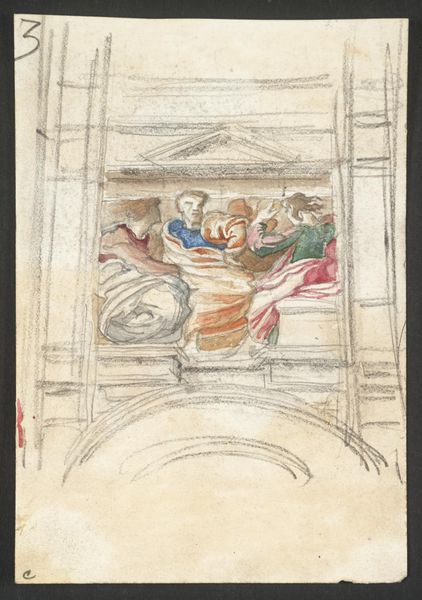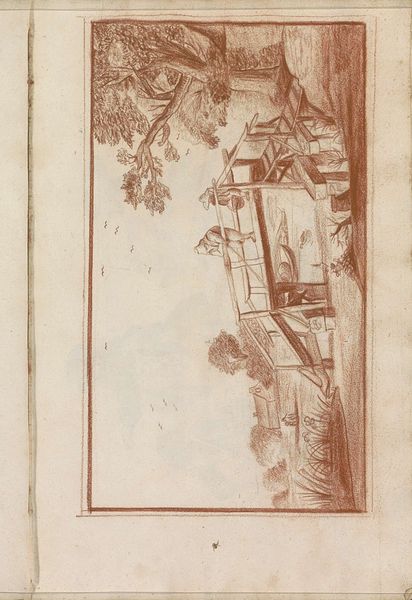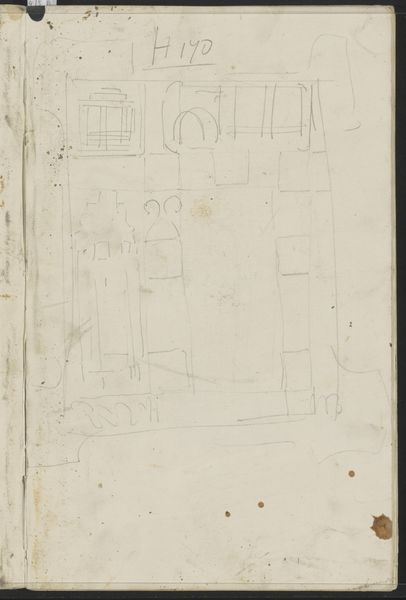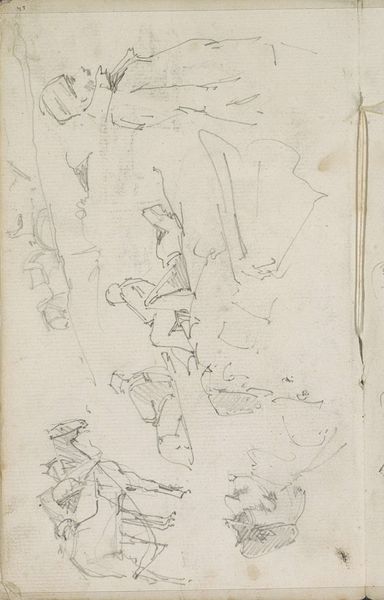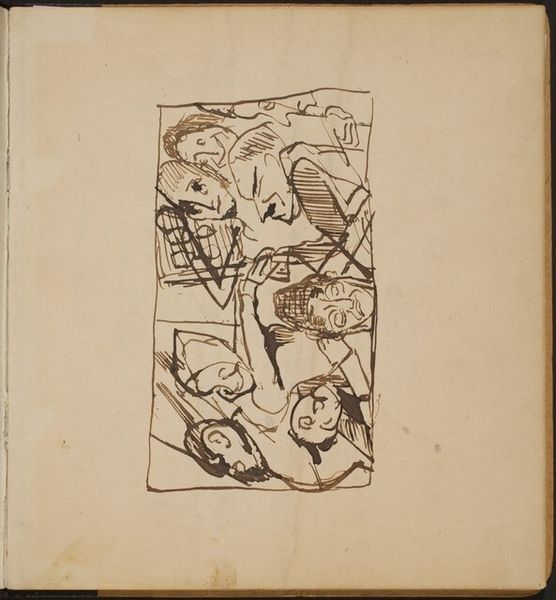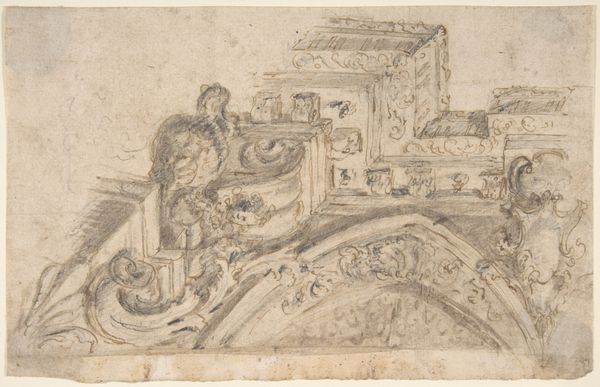
painting, watercolor
#
aged paper
#
toned paper
#
water colours
#
muted colour palette
#
dutch-golden-age
#
painting
#
light earthy tone
#
landscape
#
possibly oil pastel
#
watercolor
#
underpainting
#
watercolour bleed
#
watercolour illustration
#
genre-painting
#
watercolor
Copyright: Rijks Museum: Open Domain
Editor: Hendrick van Beaumont’s watercolor painting, "Dieren en figuren aan de rand van een stad," from 1696, strikes me as both charming and a bit mysterious. The muted color palette and somewhat abstracted forms give it an otherworldly quality. What compositional elements do you find most compelling? Curator: Indeed, the artist's deliberate use of a light earthy tone is quite captivating. It engenders a semiotic field wherein the composition may be read as an allegory rather than a mere depiction. Note, for example, the way the watercolour bleed seems to suggest a collapse of traditional spatial relationships. How do you read that juxtaposition? Editor: It definitely feels like a deliberate blurring of boundaries, perhaps even a statement about the transient nature of earthly existence. Curator: Precisely. The 'aged paper' and 'toned paper' contribute, creating visual harmony and adding to the narrative. Observe the distribution of visual weight; it subverts expectations. Editor: I do see how the weight distribution impacts the reading experience; rather than guiding the eye, it kind of diffuses attention across the work, heightening the overall sense of… wistfulness. Curator: Your observations are precise. These effects elevate this work beyond a simple genre scene into the realms of poetic introspection through visual composition and technique. It's almost a discourse about Dutch Golden Age themes, but via deconstruction of its elements. Editor: Thank you. Considering the artistic intent and the artist's compositional choices really clarified how to read this watercolor! Curator: It has been equally enlightening to examine the artwork with you; your perspective on that visual effect allowed a greater level of understanding about the piece.
Comments
No comments
Be the first to comment and join the conversation on the ultimate creative platform.
